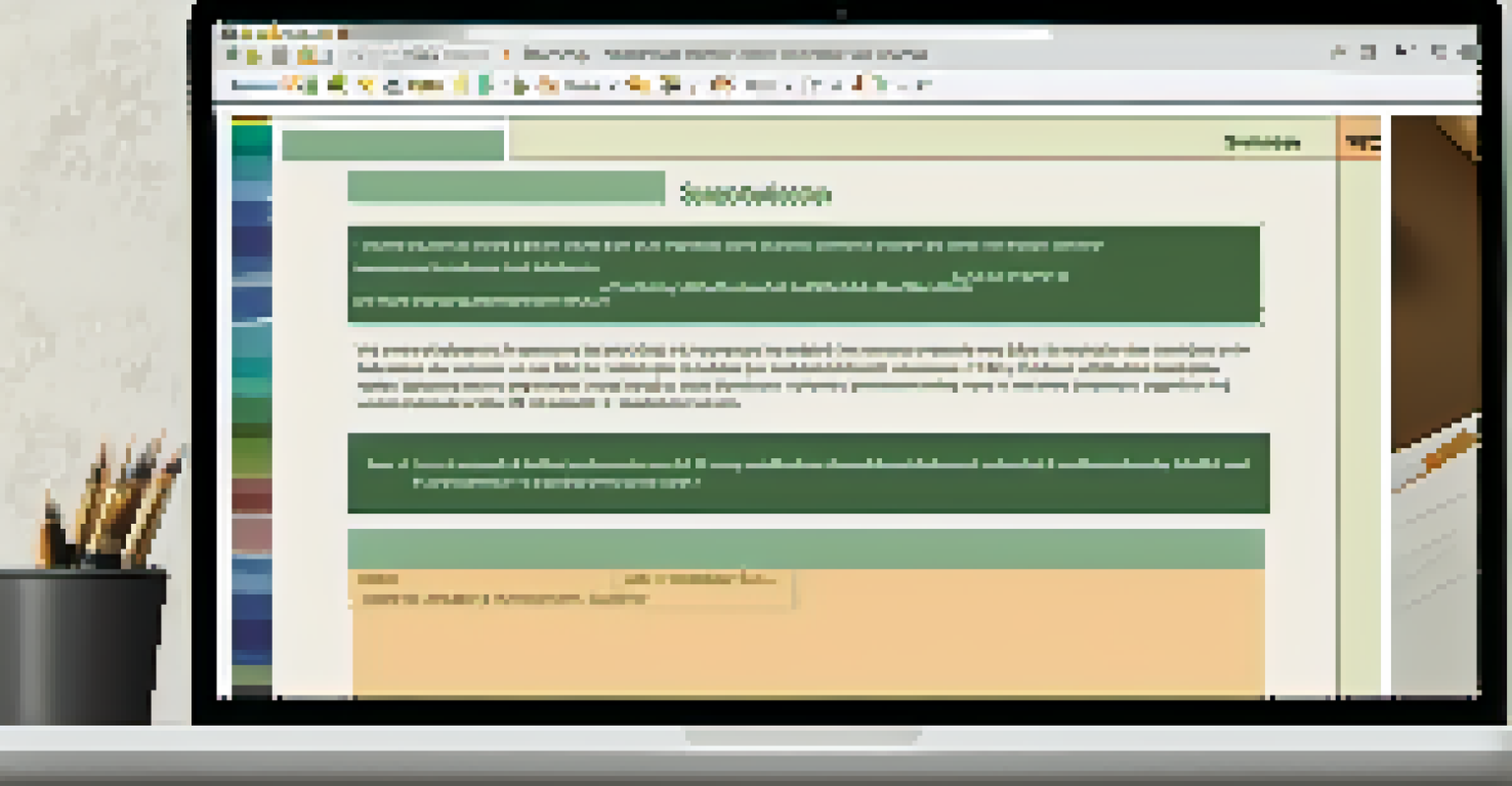How to Identify Transferable Skills for Career Changes

Understanding Transferable Skills and Their Importance
Transferable skills are abilities you can apply across various jobs and industries. They often include communication, problem-solving, and leadership. Recognizing these skills is crucial, especially when considering a career change, as they can help bridge the gap between your past experiences and your new role.
Transferable skills are the key to opening doors in a new career.
For example, if you have experience in customer service, you likely possess strong communication and conflict-resolution skills. These are highly valuable in fields like sales, project management, or human resources. By identifying these skills, you can position yourself more effectively in a new career.
Ultimately, understanding transferable skills not only boosts your confidence but also enhances your employability in a competitive job market. Emphasizing these skills in your resume and interviews can set you apart from other candidates who may lack your diverse experiences.
Reflecting on Your Past Experiences
To identify transferable skills, start by reflecting on your past job experiences. Think about the tasks you performed regularly and the challenges you overcame. This self-reflection will help you uncover the skills you may not have recognized as transferable before.

For instance, if you managed a team in a retail setting, your experience in leadership, organization, and time management can be applied to roles in various sectors. Jotting down these experiences can create a clearer picture of your skillset.
Identify Your Transferable Skills
Recognizing transferable skills from past experiences can effectively bridge the gap during a career change.
Consider using a journal or a mind map to visualize your experiences and the skills associated with them. This practice not only organizes your thoughts but also provides a tangible reference for your future job applications.
Seeking Feedback from Colleagues and Mentors
Sometimes, we overlook our own strengths, so seeking feedback from colleagues and mentors can be invaluable. They might see skills you haven't recognized in yourself. A fresh perspective can highlight abilities you possess that are applicable in other fields.
The only real mistake is the one from which we learn nothing.
For example, if you excel at mediating disputes in the workplace, someone might point out that your negotiation skills are transferable to a role in project management. Engaging in conversations about your strengths can lead to new insights.
Don't hesitate to ask specific questions about your skills. This targeted approach can yield more useful feedback, enabling you to better understand your capabilities and how they align with your career aspirations.
Analyzing Job Descriptions for Required Skills
Another effective way to identify transferable skills is by analyzing job descriptions in your desired field. Look for common skills and qualifications required across multiple postings. This practice helps you understand what employers are looking for and how your abilities match up.
For example, if you notice that many roles in your new field require strong analytical skills, consider how your past experiences involved data analysis or critical thinking. This alignment will help you showcase your relevant skills in your applications.
Seek Feedback for New Insights
Gathering feedback from colleagues and mentors can reveal overlooked skills that are applicable in other fields.
By tailoring your resume to highlight these transferable skills, you can effectively position yourself as a strong candidate, even if your previous jobs were in different industries.
Taking Inventory of Your Skills Using Tools
Utilizing online tools and resources can simplify the process of identifying your transferable skills. Websites like O*NET and SkillsMatch provide comprehensive lists of skills associated with various roles. These resources can help you discover skills you may not have considered.
You can also use skill assessment quizzes to gain insights into your strengths. These assessments often highlight both hard skills (like technical abilities) and soft skills (like teamwork). Understanding both types can give you a well-rounded view of your capabilities.
Moreover, creating a skills inventory chart can help you visualize your strengths and how they relate to your desired career path. This organized approach can make the transition smoother and more manageable.
Networking to Discover Hidden Skills and Opportunities
Networking is a powerful way to uncover transferable skills and potential career paths. Engaging with professionals in your desired field can provide insights into the skills they value most. This conversation can reveal opportunities you may not have considered previously.
Consider attending industry events or joining online forums to connect with individuals who can share their experiences. Learning about their career transitions can inspire you and help you identify skills you might apply in similar situations.
Utilize Tools for Skill Assessment
Online tools and resources can help you inventory and understand your transferable skills more comprehensively.
Additionally, building relationships with mentors can guide you in navigating your career change. They can provide personalized advice, helping you recognize and develop your transferable skills.
Practicing and Developing Your Transferable Skills
Once you've identified your transferable skills, it's essential to practice and develop them. Look for opportunities in your current job or through volunteer work to enhance these abilities. This proactive approach can increase your confidence and marketability as you transition to a new career.
For instance, if you want to strengthen your public speaking skills, consider joining a local Toastmasters club or volunteering to present at team meetings. These experiences can refine your skills and prepare you for future roles that require effective communication.

Continually seeking growth in your transferable skills not only prepares you for job applications but also fosters a mindset of lifelong learning. This adaptability is crucial in today's fast-paced job market.